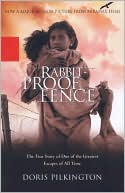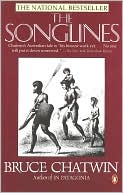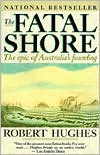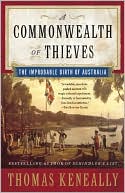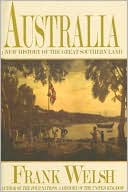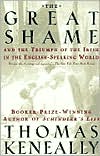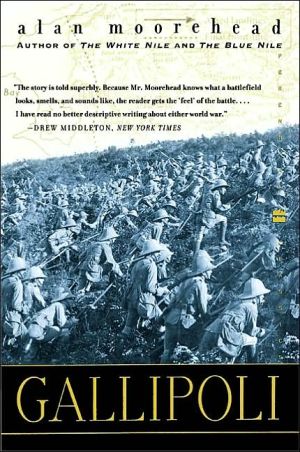Gallipoli: The End of the Myth
World War I's Gallipoli campaign was an ill-fated Allied attempt to shorten the war by eliminating Turkey, creating a Balkan alliance against the Central Powers, and securing a sea route to Russia. Now in paperback, this is the definitive report of this dramatic and tragic operation.
Search in google:
The Gallipoli campaign of 1915–16 was an ill-fated Allied attempt to shorten the war by eliminating Turkey, creating a Balkan alliance against the Central Powers, and securing a sea route to Russia. A failure in all respects, the operation ended in disaster, and the Allied forces suffered some 390,000 casualties. This conclusive book assesses the many myths that have emerged about Gallipoli and provides definitive answers to questions that have lingered about the operation. Robin Prior, a renowned military historian, proceeds step by step through the campaign, dealing with naval, military, and political matters and surveying the operations of all the armies involved: British, Anzac, French, Indian, and Turkish. Relying substantially on original documents, including neglected war diaries and technical military sources, Prior evaluates the strategy, the commanders, and the performance of soldiers on the ground. His conclusions are powerful and unsettling: the naval campaign was not “almost” won, and the land action was not bedeviled by “minor misfortunes.” Instead, the badly conceived Gallipoli campaign was doomed from the start. And even had it been successful, the operation would not have shortened the war by a single day. Despite their bravery, the Allied troops who fell at Gallipoli died in vain. Wall Street Journal It might seem that everything worth saying about World War I has already been said, but then along comes a book such as Robin Prior's Gallipoli and it's time to make room on the shelf for another essential title . . . . It is military history of the highest order.'(Mark Lasswell, "Standout Selections: The Year in Books," Wall Street Journal— The Year in Books)
List of IllustrationsList of Maps1 The Origins of the Naval Offensive 12 From Ships to Troops 203 The Worst-Laid Plans 354 The Rise and Fall of the Naval Attack 445 No Going Back 606 The Military Plan 727 Bodies Everywhere: The Helles Landings 898 A Perfect Hail of Bullets: Landing and Consolidation at Anzac 1109 The Killing Fields of Krithia 12910 Last Throw in the South 14511 The Plans of August 16012 The Assault on Sari Bair 16913 Suvla Bay: The Scapegoat Battle 19014 War as we must : The Political Debate 21015 A Campaign Not Won 221Reflections on Gallipoli 237Notes 253Bibliography 272Index 277
\ American Historical Review"[This] book sets a new standard for assessing the Allied Dardanelles campaign in 1915."—Mustafa Aksakal, American Historical Review\ — Mustafa Aksakal\ \ \ \ \ \ Wall Street JournalSelected as one of ten Best of 2009 Books, The Wall Street Journal\ \ \ Irish Times“This is a detailed account, with excellent photos, of a failed military expedition that took the lives of 46,000 Allied soldiers and left another 86,000 wounded.” - Fergus Mulligan, Irish Times\ — Fergus Mulligan\ \ \ \ \ \ Frontline“Prof. Robin Prior has consulted the archives to provide a full account that demolishes many myths … Students of history will welcome this definitive work.” - A. G. Noorani, Frontline\ — A G Noorani\ \ \ \ \ \ Washington Times"It''s a well-written book, complete with a great bibliography and some of the most outstanding maps to be delivered with any account of war and battle. That the author could assemble such a plethora of information and then distill it into such a readable account would be a story unto itself. For anyone who wants to know where, when and what Gallipoli was, this book is for you."—Vice Adm. Robert F. Dunn, The Washington Times\ — Vice Adm. Robert F. Dunn\ \ \ \ \ \ Journal of Military History"[Prior''s] narrative is fluid and internally coherent. He makes excellent use of archival material to expose the serious flaws in previous narratives, including the "official" history of the campaign. . . . certainly the best account yet published [of the Dardanelles campaign]."—Nicholas A. Lambert, The Journal of Military History\ — Nicholas A. Lambert\ \ \ \ \ \ Canadian Journal of History"This work is an excellent addition to the current body of scholarhsip with something for both the neophyte and the seasoned historian."—Blake Whitaker, Canadian Journal of History\ — Blake Whitaker\ \ \ \ \ \ Times Literary Supplement"Wootton is at his most illuminating in his discussion of Galileo’s place in the history of science (although he is not so pedestrian as to use the phrase) and the blend of personal ambition, politics and chance that made him, by virtue of his emphasis on the tension between empiricism and deduction."—Claudio Vita-Finzi, Times Literary Supplement\ — Claudio Vita-Finzi\ \ \ \ \ \ English Historical Review“This is an excellent text with new insights, and one which is sure to provoke further debate.”—Matthew Hughes, English Historical Review\ — Matthew Hughes\ \ \ \ \ \ Jay Winter“History of a very high order…. the best account by far of the campaign in 1915-16.”—Jay Winter, Yale University\ \ \ \ \ Irish Times“This is a detailed account, with excellent photos, of a failed military expedition that took the lives of 46,000 Allied soldiers and left another 86,000 wounded.” - Fergus Mulligan, Irish Times\ \ \ \ \ Frontline“Prof. Robin Prior has consulted the archives to provide a full account that demolishes many myths … Students of history will welcome this definitive work.” - A. G. Noorani, Frontline\ \ \ \ \ Wall Street Journal"It might seem that everything worth saying about World War I has already been said, but then along comes a book such as Robin Prior's Gallipoli and it's time to make room on the shelf for another essential title . . . . It is military history of the highest order.'"—Mark Lasswell, "Standout Selections: The Year in Books," Wall Street Journal\ \ \ \ \ Washington Times"It's a well-written book, complete with a great bibliography and some of the most outstanding maps to be delivered with any account of war and battle. That the author could assemble such a plethora of information and then distill it into such a readable account would be a story unto itself. For anyone who wants to know where, when and what Gallipoli was, this book is for you."—Vice Adm. Robert F. Dunn, The Washington Times\ \ \ \ \ Journal of Military History"[Prior's] narrative is fluid and internally coherent. He makes excellent use of archival material to expose the serious flaws in previous narratives, including the "official" history of the campaign. . . . certainly the best account yet published [of the Dardanelles campaign]."—Nicholas A. Lambert, The Journal of Military History\ \ \ \ \ American Historical Review"[This] book sets a new standard for assessing the Allied Dardanelles campaign in 1915."—Mustafa Aksakal, American Historical Review\ \ \ \ \ Canadian Journal of History"This work is an excellent addition to the current body of scholarhsip with something for both the neophyte and the seasoned historian."--Blake Whitaker, Canadian Journal of History\ \ \ \ \ Times Literary Supplement"Wootton is at his most illuminating in his discussion of Galileo’s place in the history of science (although he is not so pedestrian as to use the phrase) and the blend of personal ambition, politics and chance that made him, by virtue of his emphasis on the tension between empiricism and deduction."—Claudio Vita-Finzi, Times Literary Supplement\ \ \ \ \ English Historical Review“This is an excellent text with new insights, and one which is sure to provoke further debate.”—Matthew Hughes, English Historical Review\ \ \ \ \ Library JournalPrior (coauthor, The Somme) here dissects the great miscalculation of 1915-16. Designed to knock Turkey out of the war at low cost, the Gallipoli campaign instead became a killing ground that cost the Allies 390,000 casualties. Prior uses original documents and neglected diaries to re-examine assertions that the naval campaign was almost won, that misfortunes dogged the invaders, and even that success would have cracked the Turks from the Central Powers. Lengthy, detailed, and desirable for subject collections.\ —Edwin Burgess\ \ \

